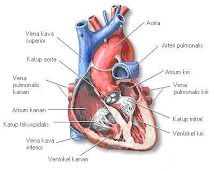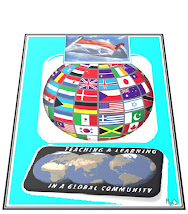Minggu, 27 Juli 2008
STAF of GOVERENMENT SUTDIES Manbaul Ullum University
Mengacu kepada:
Harvard Kennedy School
John F. Kennedy School of Government
Contact Information:
Research Administration Office
John F. Kennedy School of Government
79 JFK Street
Cambridge, MA 02138
E-mail: research_administration@ksg.harvard.edu
Phone: (617) 495-5444
Fax: (617) 496-0001
FISIP UI
Layangkan kritik, keluh kesah dan saran anda ke
fisip@ui.eduAlamat e-mail ini dilindungi dari spambot, anda harus memampukan JavaScript untuk melihatnya
atau kunjungi Forum FISIP UI
http://www.fisip.ui.ac.id
FISIP UNPAD
ALAMAT
Kampus 1:
Jalan Raya Bandung-Sumedang Km. 21 Jatinangor
Telp.(022)7796414, 779418
Faks.(022)7796974
Kampus 2:
Jalan Bukit Dago Utara No. 25 Bandung 40135
Telp. (022)2504586, 2509216
Faks. (022)2533977
Website:
http://www.unpad.ac.id http://www.fisip.unpad.ac.id
E-mail yang dapat dihubungi:
dekanfisip@unpad.ac.id
pd1fisip@unpad.ac.id
pd2fisip@unpad.ac.id
pd3fisip@unpad.ac.id
Hendri Agus H.
AKMIL MAGELANG
(Akademi Militer Magelang)
http://profiles.friendster.com/55280588

Ricky Aji Pratama
(Sekolah Tinggi Sandi Negara)
http://profiles.friendster.com/52445706

(SENEBIAN EDUCATION FOUNDATION)
Pembimbing Senior:
1. Kang Irfan Fauzi (IPDN)
2. Kang Feri Angga (IPDN)
3. Teh Seli Dewi L. (UNSOED)
Everything About Government Papers
The Definition
A government is "the organization, that is the governing authority of a political unit,"[1] "the ruling power in a political society,"[2] and the apparatus through which a governing body functions and exercises authority.[3] "Government, with the authority to make laws, to adjudicate disputes, and to issue administrative decisions, and with a monopoly of authorized force where it fails to persuade, is an indispensable means, proximately, to the peace of communal life."[4] "A compulsory territorial monopolist of protection and jurisdiction equipped with the power to tax without unanimous consent."[5] Statist theorists maintain that the necessity of government derives from the fact that the people need to live in communities, yet personal autonomy must be constrained in these communities.
A state or province of sufficient size and complexity will have different layers or levels of government: local, regional and national.
Contents
- 1 Types of government
- 2 Origin of government
- 3 Positive aspects of government
- 4 Negative aspects of government
- 5 Critical views and alternatives
- 6 Synopsis
- 7 Notes
- 8 References
- 9 Additional references
- 10 See also
Types of government
- Anarchy - Absence, or lack of government.[6][7]
- Democracy - Rule by a government where the people as a whole hold the power. It may be exercised by them (direct democracy), or through representatives chosen by them (representative democracy).[8][9][10]
- Despotism - Rule by a single leader, all his or her subjects are considered his or her slaves.
- Dictatorship - Rule by an individual who has full power over the country.[11] See also Autocracy and Stratocracy.
- Monarchy - Rule by an individual who has inherited the role and expects to bequeath it to their heir.[12]
- Oligarchy - Rule by a small group of people who share similar interests or family relations.[13]
- Plutocracy - A government composed of the wealthy class.
- Theocracy - Rule by a religious elite.[14]
Some countries have hybrid forms of Government such as modern Iran with its combination of democratic and theocratic institutions, and constitutional monarchies such as The Netherlands combine elements of monarchy and democracy.[15][16]
Origin of government
For many thousands of years when pepole were hunter-gatherers and small scale farmers, humans lived in small, "relatively non-hierarchical" and mostly self-sufficient communities. However, the human ability to precisely communicate abstract, learned information allowed humans to become ever more effective at agriculture,[17] and that allowed for ever increasing population densities.[18] David Christian explains how this resulted in states with laws and governments:
As farming populations gathered in larger and denser communities, interactions between different groups increased and the social pressure rose until, in a striking parallel with star formation, new structures suddenly appeared, together with a new level of complexity. Like stars, cities and states reorganize and energize the smaller objects within their gravitational field.
—David Christian, p. 245, Maps of Time
The exact moment and place that the phenomenon of human government developed is lost in time; however, history does record the formations of very early governments. About 5,000 years ago, the first small city-states appeared.[18] By the third to second millenniums BC, some of these had developed into larger governed areas: the Indus Valley Civilization, Sumer, Ancient Egypt and the Yellow River Civilization.[19]
States formed as the results of a positive feedback loop where population growth results in increased information exchange which results in innovation which results in increased resources which results in further population growth.[20][21] The role of cities in the feedback loop is important. Cities became the primary conduits for the dramatic increases in information exchange that allowed for large and densely packed populations to form, and because cities concentrated knowledge, they also ended up concentrating power.[22][23] "Increasing population density in farming regions provided the demographic and physical raw materials used to construct the first cities and states, and increasing congestion provided much of the motivation for creating states."[24]
Fundamental purpose of government
The fundamental purpose of government is the maintenance of basic security and public order — without which individuals cannot attempt to find happiness.[25] The philosopher Thomas Hobbes figured that people, as rational animals, saw submission to a government dominated by a sovereign as preferable to anarchy.[26][27]
People in a community create and submit to government for the purpose of establishing for themselves, safety and public order.[28][27][29][30]
Early governments
These are examples of some of the earliest known governments:
- Ancient Egypt—3000 BC[19]
- Indus Valley Civilization—3000 BC[19][31]
- Sumer—5200 BC[19]
- Yellow River Civilization (China)—2000 BC[19]
Expanded roles for government
Military defense
The fundamental purpose of government is to protect one from his or her neighbors; however, a sovereign of one country is not necessarily sovereign over the people of another country. The need for people to defend themselves against potentially thousands of non-neighbors necessitates a national defense mechanism—a military.
Militaries are created to deal with the highly complex task of confronting large numbers of enemies. A farmer can defend himself from a single enemy person—or even five enemies, but he can't defend himself from twenty thousand—even with the help of his strongest and bravest family members. A far larger group would be needed, and despite the fact that most of the members of the group would not be related by family ties, they would have to learn to fight for one another as if they were all in the same family. An organization that trains people to do this is an army.
Wars and armies predated governments, but once governments came onto the scene, they proceeded to dominate the formation and use of armies. Governments seek to maintain monopolies on the use of force,[4] and to that end, they usually suppress the development of private armies within their states.
Economic security
Increasing complexities in society resulted in the formations of governments, but the increases in complexity didn't stop. As the complexity and interdependency's of human communities moved forward, economies began to dominate the human experience enough for an individual's survival potential to be affected substantially by the region's economy. Governments were originally created for the purpose of increasing people's survival potentials, and in that same purpose, governments became involved in manipulating and managing regional economies.[32] One of a great many examples would be Wang Mang's attempt to reform the currency in favor of the peasants and poor in ancient China.[33]
At a bare minimum, government ensures that money's value will not be undermined by prohibiting counterfeiting, but in almost all societies—including capitalist ones—governments attempt to regulate many more aspects of their economies.[34] However, very often, government involvement in a national economy has more than just a purpose of stabilizing it for the benefit of the people. Often, the members of government shape the government's economic policies for their own benefits. This will be discussed shortly.
Social security
Social security is related to economic security. Throughout most of human history, parents prepared for their old age by producing enough children to ensure that some of them would survive long enough to take care of the parents in their old age.[35] In modern, relatively high-income societies, a mixed approach is taken where the government shares a substantial responsibility of taking care of the elderly.[35]
This is not the case everywhere since there are still many countries where social security through having many children is the norm. Although social security is a relatively recent phenomenon, prevalent mostly in developed countries, it deserves mention because the existence of social security substantially changes reproductive behavior in a society, and it has an impact on reducing the cycle of poverty.[35] By reducing the cycle of poverty, government creates a self-reinforcing cycle where people see the government as friend both because of the financial support they receive late in their lives, but also because of the overall reduction in national poverty due to the government's social security policies--which then adds to public support for social security.[36]
Environmental security
Governments play a crucial role in managing environmental public goods such as the atmosphere, forests and water bodies. Governments are valuable institutions for resolving problems involving these public goods at both the local and global scales (e.g., climate change, deforestation, overfishing). Although in recent decades the economic market has been championed by certain quarters as a suitable mechanism for managing environmental entities, markets have serious failures and governmental intervention and regulation and the rule of law is still required for the proper, just and sustainable management of the environment.
Positive aspects of government
Governments vary greatly, and the situation of citizens within their governments can vary greatly from person to person. For many people, government is seen as a positive force.
Upper economic class support
Governments often seek to manipulate their nations' economies — ostensibly for the nations' benefits. However, another aspect of this kind of intervention is the fact that the members of government often take opportunities to shape economic policies for their own benefits. For example, capitalists in a government might adjust policy to favor capitalism, so capitalists would see that government as a friend. In a feudal society, feudal lords would maintain laws that reinforce their powers over their lands and the people working on them, so those lords would see their government as a friend. Naturally, the exploited persons in these situations may see government very differently.
Support for democracy
Government, especially in democratic and republican forms, can be seen as the entity for a sovereign people to establish the type of society, laws and national objectives that are desired collectively. A government so created and maintained will tend to be quite friendly toward those who created and maintain it.
Religion
Government can benefit or suffer from religion, as religion can benefit or suffer from government. While governments can threaten people with physical harm for observed violations of the law, religion often provides a psychological disincentive for socially destructive or anti-government actions.[37][38] Religion can also give people a sense of peace and resolve even when they are in trying circumstances, and when an individual's religious beliefs are aligned with the government's, that person will tend to see government as a friend—especially during religious controversies.
Negative aspects of government
Since the positions of individuals with respect to their governments can vary, there are people who see a government or governments as negative.
War
In the most basic sense, a people of one nation will see the government of another nation as the enemy when the two nations are at war. For example, the people of Carthage saw the Roman government as the enemy during the Punic wars.[39]
Enslavement
In early human history, the outcome of war for the defeated was often enslavement. The enslaved people would not find it easy to see the conquering government as a friend.
Religious opposition
There is a flip side to the phenomenon of people's ability to view a government as a friend because they share the government's religious views. People with opposing religious views will have a greater tendency to view that government as their enemy. A good example would be the condition of Catholicism in England before the Catholic Emancipation. Protestants—who were politically dominant in England—used political, economic and social means to reduce the size and strength of Catholicism in England over the 16th to 18th centuries, and as a result, Catholics in England felt that their religion was being oppressed.[40]
Class oppression
Whereas capitalists in a capitalist country may tend to see that nation's government as their friend, a class-aware group of industrial workers—a proletariat—may see things very differently. If the proletariat wishes to take control of the nation's productive resources, and they are blocked in their endeavors by continuing adjustments in the law made by capitalists in the government,[41] then the proletariat will come to see the government as their enemy—especially if the conflicts become violent.
The same situation can occur among peasants. The peasants in a country, e.g. Russia during the reign of Catherine the Great, may revolt against their landlords, only to find that their revolution is put down by government troops.[42]
Critical views and alternatives
The relative merits of various forms of government have long been debated by philosophers, politicians and others. However, in recent times, the traditional conceptions of government and the role of government have also attracted increasing criticism from a range of sources. Some argue that the traditional conception of government, which is heavily influenced by the zero-sum perceptions of state actors and focuses on obtaining security and prosperity at a national level through primarily unilateral action, is no longer appropriate or effective in a modern world that is increasingly connected and interdependent. One such school of thought is human security, which advocates for a more people-based (as opposed to state-based) conception of security, focusing on protection and empowerment of individuals. Human security calls upon governments to recognise that insecurity and instability in one region affects all and to look beyond national borders in defining their interests and formulating policies for security and development. Human security also demands that governments engage in a far greater level of cooperation and coordination with not only domestic organisations, but also a range of international actors such as foreign governments, intergovernmental organisations and non-government organisations.
Whilst human security attempts to provide a more holistic and comprehensive approach to world problems, its implementation still relies to a large extent on the will and ability of governments to adopt the agenda and appropriate policies. In this sense, human security provides a critique of traditional conceptions of the role of government, but also attempts to work within the current system of state-based international relations. Of course, the unique characteristics of different countries and resources available are some constraints for governments in utilising a human security framework.
Synopsis
Government is sometimes an enemy and sometimes a friend. Government exalts some of us and oppresses others of us. At times, governments are aligned with our religious, economic and social views, and at other times—misaligned.
The role of government in the lives of people has expanded significantly during human history. Government's role has gone from providing basic security to concern in religious affairs to control of national economies and eventually to providing lifelong social security. As our societies have become more complex, governments have become more complex, powerful and intrusive. The controversies over how big, how powerful and how intrusive governments should become will continue for the remainder of human history.
Notes
- ^ Wordnet Search 3.0: Government
- ^ LoveToKnow: 1911 Encyclopedia: Government
- ^ American 760
- ^ a b Adler 80-81
- ^ Hoppe, Hans-Hermann (2003). The Myth of National Defense, 8. ISBN 0-945466-37-4.
- ^ American 65
- ^ Technically, anarchy is not a
- { Constitutional Monarchy} A government that has a king, but his/her power is strictly limited by the government. An example of this is the UK.
- ^ American 483
- ^ Fotopoulos, Takis, The Multidimensional Crisis and Inclusive Democracy. (Athens: Gordios, 2005). (English translation of the book with the same title published in Greek).
- ^ "Victorian Electronic Democracy : Glossary" (July 28, 2005). Retrieved on 2007-12-14.
- ^ American 503
- ^ American 1134
- ^ American 1225
- ^ American 1793
- ^ "CIA World Factbook -- Iran". Central Intelligence Agency (2007). Retrieved on 2007-12-04. (printable version)
- ^ "CIA - World Factbook -- Netherlands". Central Intelligence Agency (2007). Retrieved on 2007-12-04.
- ^ Christian 146-147
- ^ a b Christian 245
- ^ a b c d e Christian 294
- ^ Christian 253
- ^ Most of this sentence is in the present tense because the process is still ongoing.
- ^ Christian 271
- ^ The concept of the city itself became a self-reinforcing cycle. "The creation of such large and dense communities required new forms of power," and since cities concentrate power, the new (sovereign) rulers had incentives to build and expand cities to further increase their power.(Christian 271,321)
- ^ Christian 248
- ^ Schulze 81
- ^ Dietz 68
- ^ a b Social Contract Theory
- ^ Dietz 65-66
- ^ Hobbes idea of the necessity of the formation of government is known as the social contract theory.
- ^ The field of study and thought about the necessity of governments and governments' relationships with people is known as political philosophy.
- ^ Higham, "Indus Valley Civilization"
- ^ Schulze 13,58
- ^ General Zhaoyun par. 1
- ^ Interestingly, during World War I, the "capitalist" countries of Europe implemented economic measures that would make a socialist proud.(Schulze 275)
- ^ a b c Nebel 165-166
- ^ Bruce Bartlett. Social Security Then and Now. COMMENTARY. March 2005, Vol. 119, No. 3, pp. 52-56. In the online version on paragraph 13 it suggests that, During the Great Depression, Roosevelt wanted to suppress revolutionary tendencies by tying workers to the state—hence a state-run social security system. Also read the paragraphs above where it talks about populist demagogues and socialist revolutions in other countries. Tying workers to the state through social security was a politically strategic move designed to preserve the United States of America and its democracy.
- ^ Dietz 151n70
- ^ Dietz 138
- ^ E.L. Skip Knox. "The Punic Wars". Department of History, Boise State University. Retrieved on 2007-12-14.
- ^ "CATHOLIC ENCYCLOPEDIA: England (Since the Reformation)". www.newadvent.org (1913). Retrieved on 2007-12-14.
- ^ Christian 358
- ^ McKay 613
References
- Adler, Mortimer J. (1996). The Common Sense of Politics. Fordham University Press, New York. ISBN 0-8232-1666-7.
- American Heritage dictionary of the English language, 4th edition, 222 Berkeley Street, Boston, MA 02116: Houghton Mifflin Company, pp. 572, 770. ISBN 0-395-82517-2.
- Christian, David (2004). Maps of Time. University of California Press. ISBN 0-520-24476-1.
- Dietz, Mary G. (1990). Thomas Hobbes & Political Theory. University Press of Kansas. ISBN 0-7006-0420-0.
- General Zhaoyun (2004-08-04). "WANG MANG: China History Forum". China History Forum. Retrieved on 2007-11-02.
- "LoveToKnow Classic Encyclopedia". LoveToKnow Corp. (1911). Retrieved on 2007-12-04.
- McKay, John P.; Bennett D. Hill, John Buckler (1996). A History of World Societies. Houghton Mifflin Company. ISBN 0-395-75379-1.
- Miller, George A.; Christiane Fellbaum, and Randee Tengi, and Pamela Wakefield, and Rajesh Poddar, and Helen Langone, and Benjamin Haskell (2006). "WordNet Search 3.0". WordNet a lexical database for the English language. Princeton University/Cognitive Science Laboratory /221 Nassau St./ Princeton, NJ 08542. Retrieved on 2007-11-10.
- Nebel, Bernard J.; Richard T. Wright (2007). Environmental Science (7th ed.). Prentice Hall, Inc., Upper Saddle River, NJ 07458. ISBN 0-13-083134-4.
- Schulze, Hagen (1994). States, Nations and Nationalism. Blackwell Publishers Inc, 350 Main Street, Malden, Massachusetts 02148, USA.
Additional references
- Higham, Charles F. W. (2004). "Indus Valley Civilization". Ancient and Medieval History Online. Facts On File, Inc.. Retrieved on 2007-12-07.
-
- Kenoyer, J. M. Ancient Cities of the Indus Civilization. Oxford: Oxford University Press, 1998
- Possehl, Gregory L. Harappan Civilization: A Recent Perspective. New Delhi: Oxford University Press, 1993
- Indus Age: The Writing System. Philadelphia: University of Pennsylvania Press, 1996
- “Revolution in the Urban Revolution: The Emergence of Indus Urbanisation,” Annual Review of Anthropology 19 (1990): 261–282.
- Higham, Charles F. W. (2004). "History of ancient and medieval Asia". Ancient and Medieval History Online. Facts On File, Inc.. Retrieved on 2007-12-07.
See also
Governmental roles
Relevant lists
Related topics
Pemerintahan Kota Banjar
Sekilas Kota Banjar
 http://www.banjar-jabar.go.id/redesign/
http://www.banjar-jabar.go.id/redesign/Sejarah Berdirinya Pemerintah Kota Banjar
Sejarah Pembentukan Kota Banjar tidak terlepas dari sejarah berdirinya Pemerintah Kabupaten Ciamis di masa lalu. Rangkaian waktu perjalanan berdirinya Pemerintah Kabupaten Ciamis sampai terbentuknya Pemerintah Kota Banjar melalui tahapan-tahapan sebagai berikut :
I. Banjar dalam sejarah perkembangannya
Banjar sejak didirikan sampai sekarang mengalami beberapa kali perubahan status, untuk lebih jelas perkembangannya sebagai berikut :
A. Banjar sebagai Ibukota Kecamatan, dari tahun 1937 sampai tahun 1940.
B. Banjar sebagai Ibukota Kewadanaan, dari tahun 1941 sampai dengan 1 Maret 1992
C. Banjar sebagai Kota Administratif dari tahun 1992 sampai dengan tanggal 20 Pebruari 2003.
D. Banjar sebagai Kota sejak tanggal 21 Pebruari 2003.
II. Terbentuknya Banjar Kota Administratif
Perkembangan dan kemajuan wilayah Provinsi Jawa Barat pada umumnya dan Kabupaten Ciamis khususnya wilayah Kecamatan Banjar, memerlukan pengaturan penyelenggaraan pemerintahan secara khusus guna menjamin terpenuhinya tuntutan perkembangan dan kemajuan sesuai dengan aspirasi masyarakat di Wilayah Kecamatan Banjar.
Wilayah Kecamatan Banjar menunjukan perkembangan dan kemajuan dengan ciri dan sifat kehidupan perkotaan, atas hal tersebut wilayah Banjar perlu ditingkatkan menjadi Kota Administratif yang memerlukan pembinaan serta pengaturan pemerintahan, pembangunan dan kemasyarakatan secara khusus.
Akhirnya tahun 1992 Pemerintah membentuk Banjar Kota Administratif berdasarkan Peraturan Pemerintah Nomor 54 Tahun 1991 tentang Pembentukan Banjar Kota Administratif yang diresmikan oleh Menteri Dalam Negeri pada tanggal 2 Maret 1992.
Beberapa alasan mengapa Banjar menjadi Kota administratif antara lain :
Keadaan Geografis, Demografis dan sosiologis kehidupan masyarakat yang perkembangannya sangat pesat sehingga memerlukan peningkatan pelayanan dan pengaturan dalam penyelenggaraan pemerintahan.
III. Terbentuknya Kota Banjar
Semakin pesatnya perkembangan dan tuntutan aspirasi masyarakat yang semakin mendesak agar Banjar Kota Administratif segera ditingkatkan menjadi Pemerintah Kota dimana hal ini pun sejalan dengan tuntutan dan undang-undang nomor 22 Tahun 1999 tentang Pemerintahan Daerah dan di sisi lain Pemerintah Kabupaten Ciamis bersama-sama Pemerintah Provinsi Jawa Barat memperhatikan perkembangan tersebut dan mengusulkan kepada Pemerintah Pusat dan Dewan Perwakilan Rakyat Republik Indonesia.
Riset & Analisa Serta Problem Solving Kebijakan
Pemerintahan Provinsi Jawa Barat

Sekilas Jawa Barat
(http://www.jabar.go.id/)
VISI
Pembangunan di Jawa Barat pada tahap kedua RPJP Daerah atau RPJM Daerah tahun 2008-2013 menuntut perhatian lebih, tidak hanya untuk menghadapi permasalahan yang belum terselesaikan, namun juga untuk mengantisipasi perubahan yang muncul di masa yang akan datang. Posisi Jawa Barat yang strategis dan berdekatan dengan ibukota negara, mendorong Jawa Barat berperan sebagai agent of development (agen pembangunan) bagi pertumbuhan nasional.
Berbagai isu global dan nasional yang perlu dipertimbangkan dalam menyelesaikan isu yang bersifat lokal dan berimplikasi pada kesejahteraan masyarakat. Permasalahan yang dihadapi Jawa Barat antara lain kemiskinan, penataan ruang dan lingkungan hidup, pertumbuhan dan pemerataan pembangunan, terbatasnya kesempatan kerja, mitigasi bencana serta kesenjangan sosial. Dalam mengatasi permasalahan tersebut diperlukan penguatan kepemimpinan yang didukung oleh rakyat dan aspek politis.
Arah kebijakan pembangunan daerah ditujukan untuk pengentasan kemiskinan dan peningkatan kualitas hidup masyarakat, revitalisasi pertanian dan kelautan, perluasan kesempatan lapangan kerja, peningkatan aksebilitas dan kualitas pelayanan kesehatan dan pendidikan, pembangunan infrastruktur strategis, perdagangan, jasa dan industri pengolahan yang berdaya saing, rehabilitasi dan konservasi lingkungan serta penataan struktur pemerintah daerah yang menyiapkan kemandirian masyarakat Jawa Barat.
Dengan mempertimbangkan potensi, kondisi, permasalahan, tantangan dan peluang yang ada di Jawa Barat serta mempertimbangkan budaya yang hidup dalam masyarakat, maka Visi Pemerintahan Daerah Provinsi Jawa Barat tahun 2008-2013 yang hendak dicapai dalam tahapan kedua Pembangunan Jangka Panjang Daerah Provinsi Jawa Barat adalah :
“Tercapainya Masyarakat Jawa Barat yang Mandiri, Dinamis dan Sejahtera”.
Memperhatikan visi tersebut serta perubahan paradigma dan kondisi yang akan dihadapi pada masa yang akan datang, diharapkan Provinsi Jawa Barat dapat lebih berperan dalam perubahan yang terjadi di lingkup nasional, regional, maupun global.
Penjabaran makna dari Visi Jawa Barat tersebut adalah sebagai berikut :
| Mandiri : | adalah sikap dan kondisi masyarakat Jawa Barat yang mampu memenuhi kebutuhannya untuk lebih maju dengan mengandalkan kemampuan dan kekuatan sendiri, terutama dalam bidang pendidikan, kesehatan, ketenagakerjaan, pelayanan publik berbasis e-government, energi, infrastruktur, lingkungan dan sumber daya air. |
| Dinamis : | adalah sikap dan kondisi masyarakat Jawa Barat yang secara aktif mampu merespon peluang dan tantangan zaman serta berkontribusi dalam proses pembangunan. |
| Sejahtera : | adalah sikap dan kondisi masyarakat Jawa Barat yang secara lahir dan batin mendapatkan rasa aman dan makmur dalam menjalani kehidupan. |
Agar visi tersebut dapat diwujudkan dan dapat mendorong efektivitas dan efisiensi pemanfaatan sumber daya yang dimiliki, ditetapkan misi Provinsi Jawa Barat, yang didalamnya mengandung gambaran tujuan serta sasaran yang ingin dicapai.
MISI
Rencana Pembangunan Jangka Menengah Daerah Provinsi Jawa Barat 2008-2013 yang merupakan tahapan kedua dari Rencana Pembangunan Jangka Panjang Daerah Provinsi Jawa Barat 2005-2025, berorientasi pada pembangunan dan peningkatan kompetensi segenap sumber daya yang terdapat di Jawa Barat dalam segala bidang, guna menyiapkan kemandirian masyarakat Jawa Barat. Hal tersebut akan dicapai dengan menciptakan aktivitas ekonomi yang efektif dan efisien, menekankan upaya penguatan suprastruktur pelayanan kesehatan dan pendidikan, melanjutkan pembangunan infrastruktur wilayah, memantapkan revitalisasi infrastruktur yang telah ada, meningkatkan produktifitas pertanian dengan memanfaatkan teknologi berkelanjutan, meningkatkan kerja sama antara pemerintah dengan swasta dan masyarakat, meningkatkan kualitas lingkungan, meningkatkan kinerja pemerintahan daerah, menyusun perencanaan yang cerdas dan mampu menjawab masalah serta mengantisipasi peluang dan tantangan yang muncul secara cermat dan cerdas.
Kemampuan ekonomi dalam menciptakan lapangan kerja dan mengurangi kemiskinan akan terus didorong. Kebijakan ekonomi daerah diarahkan untuk mencapai pertumbuhan ekonomi yang berkelanjutan dan berkualitas melalui pengembangan kegiatan utama (core business) berdasarkan potensi lokal untuk mengurangi disparitas kesejahteraan antarwilayah. Hal ini dilakukan melalui pengembangan agribisnis, bisnis kelautan, industri manufaktur, jasa, dan pariwisata, yang ditunjang oleh pengembangan dunia usaha, investasi, infrastruktur dan keuangan daerah.
Dorongan terhadap pertumbuhan ekonomi juga dilakukan dengan mempercepat pembangunan infrastruktur bagi penyediaan energi termasuk listrik, serta memantapkan infrastruktur wilayah dalam rangka mendukung pemerataan dan pertumbuhan ekonomi.
Kebijakan berlanja daerah diupayakan dengan pengaturan pola pembelanjaan yang proporsional, efisien dan efektif, dengan berprinsip pada pro growth, pro poor, pro job, pro environment, pro public, melalui alokasi anggaran untuk 20% pendidikan, peningkatan kualitas dan kuantitas pelayanan kesehatan serta penggunaan indeks relevansi anggaran dalam penentuan anggaran belanja, penganggaran untuk mitigasi serta kebencanaan dan kerjasama antar daerah.
Isu strategis mengenai permasalahan yang berkaitan dengan fenomena atau yang belum dapat diselesaikan pada periode 5 (lima) tahun sebelumnya serta memiliki dampak jangka panjang bagi keberlanjutan pelaksanaan pembangunan, akan diatasi secara bertahap isu-isu ini mencakup aksesibilitas dan mutu pelayanan pendidikan masyarakat, pelayanan kesehatan masyarakat, ketersediaan dan pelayanan infrastruktur, penanganan kemiskinan dan pengangguran, penangan bencana alam, pengendalian lingkungan hidup, penanganan ketenagakerjaan, pemerintahan dan politik, pengendalian kependudukan, pemberdayaan ekonomi, apresiasi budaya daerah dan pemerintahan otonom.
Dalam rangka mengantisipasi kondisi dan permasalahan yang ada serta memperhatikan tantangan ke depan dengan memperhitungkan peluang yang dimiliki, maka rumusan Misi Provinsi Jawa Barat dalam rangka pencapaian Visi Jawa Barat 2013 ditetapkan dalam 5 (lima) misi berikut ini, untuk mencapai masyarakat Jawa Barat yang mandiri, dinamis dan sejahtera.
Misi Pertama, Mewujudkan Sumber Daya Manusia Jawa Barat yang Produktif dan Berdaya Saing.
Tujuan :
1. Mendorong masyarakat ke arah peningkatan kualitas pendidikan, kesehatan, dan kompetensi kerja;
2. Menjadikan masyarakat Jawa Barat yang sehat, berbudi pekerti luhur serta menguasai ilmu pengetahuan dan teknologi.
Sasaran :
1. Tuntasnya program pemberantasan buta aksara;
2. Meningkatnya akses dan mutu pendidikan terutama untuk penuntasan wajib belajar pendidikan dasar 9 tahun dan pencanangan wajib belajar 12 tahun bagi anak usia sekolah;
3. Meningkatnya akses dan mutu pelayanan kesehatan terutama untuk kesehatan ibu dan anak;
4. Meningkatnya pelayanan sosial dan penanggulangan korban bencana;
5. Meningkatnya kesetaraan gender;
6. Meningkatnya kualitas dan perlindungan terhadap tenaga kerja;
7. Meningkatnya peran pemuda dan prestasi olahraga dalam pembangunan kualitas hidup dan kehidupan masyarakat;
8. Meningkatnya kualitas kehidupan beragama;
9. Revitalisasi nilai-nilai budaya dan kearifan lokal.
Misi Kedua, Meningkatkan Pembangunan Ekonomi Regional Berbasis Potensi Lokal.
Tujuan :
Meningkatkan daya beli dan ketahanan pangan masyarakat melalui pengembangan aktivitas ekonomi berbasis potensi lokal.
Sasaran :
1. Meningkatnya aktivitas ekonomi regional berbasis potensi lokal;
2. Meningkatnya kesempatan dan penyediaan lapangan kerja;
3. Meningkatnya peran kelembagaan dan permodalan KUMKM dalam pengembangan ekonomi lokal yang berdaya saing;
4. Meningkatnya investasi yang mendorong penciptaan lapangan kerja;
5. Terpenuhinya kebutuhan pangan masyarakat.
Misi Ketiga, Meningkatkan Ketersediaan dan Kualitas Infrastruktur Wilayah.
Tujuan :
Menyediakan infrastruktur wilayah yang mampu mendukung aktivitas ekonomi, sosial dan budaya.
Sasaran :
1. Tersedianya infrastruktur transportasi yang handal dan terintegrasi untuk mendukung pergerakan perhubungan orang, barang dan jasa;
2. Tersedianya infrastruktur sumber daya air dan irigasi yang handal untuk mendukung upaya konservasi dan pendayagunaan sumber daya air, serta pengendalian daya rusak air;
3. Meningkatnya cakupan pelayanan dan kualitas infrastruktur energi dan ketenagalistrikan di Jawa Barat;
4. Meningkatnya akses masyarakat terhadap sarana dan prasarana dasar pemukiman (mencakup persampahan, air bersih, air limbah);
5. Terwujudnya keamanan dan keserasian dalam pembangunan infrastruktur.
Misi Keempat, Meningkatkan Daya Dukung dan Daya Tampung Lingkungan Untuk Pembangunan yang Berkelanjutan.
Tujuan :
Mewujudkan keseimbangan lingkungan dan keberlanjutan pembangunan.
Sasaran :
1. Terkendalinya pertumbuhan, pertambahan jumlah serta persebaran penduduk;
2. Berkurangnya tingkat pencemaran, kerusakan lingkungan, dan resiko bencana;
3. Meningkatnya fungsi kawasan lindung Jawa Barat;
4. Terlaksananya penataan ruang yang berkelanjutan;
5. Meningkatnya ketersediaan dan pemanfaatan energi alternatif yang ramah lingkungan serta energi terbaharukan diantaranya panas bumi, angin, dan surya.
Misi Kelima, Meningkatkan Efektifitas Pemerintahan Daerah dan Kualitas Demokrasi.
Tujuan :
1. Mengembangkan birokrasi yang semakin profesional dan akuntabel;
2. Mewujudkan kehidupan demokrasi dan terpeliharanya semangat kebangsaan.
Sasaran :
1. Meningkatnya kinerja dan disiplin aparatur yang berbasis kompetensi;
2. Terwujudnya kelembagaan dan ketatalaksanaan pemerintah daerah serta pengelolaan keuangan daerah yang akuntabel dan berbasis teknologi informasi;
3. Meningkatnya pelayanan publik yang dapat diakses dengan mudah dan cepat oleh seluruh lapisan masyarakat;
4. Meningkatnya kinerja pemerintahan desa dan pembangunan perdesaan;
5. Meningkatnya pembangunan dan pembinaan hukum di daerah;
6. Meningkatnya peran pemerintah dan masyarakat dalam pemeliharaan ketertiban umum dan ketentraman masyarakat;
7. Meningkatnya kerjasama daerah dalam pembangunan;
8. Meningkatnya peran dan fungsi partai politik;
9. Menguatnya peran masyarakat madani dalam kehidupan politik;
10. Tumbuhnya pembangunan kehidupan bermasyarakat, berbangsa dan bernegara.
Dalam rangka mewujudkan ke 5 (lima) misi tersebut, didasarkan pada nilai-nilai agama dan budaya daerah, dengan prinsip-prinsip penyelenggaraan pemerintahan, sebagai berikut :
1. Good Governance (tata kelola kepemerintahan), yaitu kepengelolaan dan kepengurusan pemerintahan yang baik bebas Korupsi, Kolusi dan Nepotisme (KKN) untuk menciptakan penyelenggaraan negara yang solid, bertanggung jawab, efektif dan efisien, dengan menjaga keserasian interaksi yang konstruktif di antara domain negara, swasta dan masyarakat;
2. Integrity (integritas), yaitu suatu kesatuan perilaku yang melekat pada prinsip-prinsip moral dan etika, terutama mengenai karakter moral dan kejujuran, yang dihasilkan dari suatu sistem nilai yang konsisten;
3. Quality and Accountability (mutu dan akuntabilitas), yaitu suatu tingkatan kesempurnaan, merupakan karakteristik pribadi yang mampu memberikan hasil yang melebihi kebutuhan atau pun harapan, dan sebuah bentuk tanggung jawab untuk suatu tindakan, keputusan dan kebijakan yang telah mempertimbangkan mengenai aturan, pemerintahan dan implementasinya, dalam pandangan hukum dan tata kelola yang transparan;
4. Pemerataan pembangunan yang berkeadilan, yaitu upaya mewujudkan peningkatan kualitas hidup dan kesejahteraan masyarakat untuk mengurangi tingkat kemiskinan, kesenjangan antarwilayah, dan kesenjangan sosial antar kelompok masyarakat, melalui pemenuhan kebutuhan akses pelayanan sosial dasar termasuk perumahan beserta sarana dan prasarananya, serta memberikan kesempatan berusaha bagi seluruh lapisan masyarakat untuk menanggulangi pengangguran dengan menyeimbangkan pengembangan ekonomi skala kecil, menengah, dan besar;
| Kabupaten Sukabumi |
| Kabupaten Bekasi |
| Kabupaten Ciamis |
| Kabupaten Tasikmalaya |
| Kota Banjar |
| Kota Depok |
| Kota Bekasi |
| Kabupaten Cirebon |
| Kabupaten Sumedang |
| Kabupaten Indramayu |
| Kabupaten Purwakarta |
| Kabupaten Karawang |
| Kota Bogor |
| Kabupaten Majalengka |
| Kabupaten Bogor |
| Kabupaten Garut |
| Kabupaten Cianjur |
| Kabupaten Bandung |
| Kabupaten Kuningan |
| Kabupaten Subang |
| Kota Sukabumi |
| Kota Bandung |
| Kota Cirebon |
| Kabupaten Bandung Barat |
| Kota Cimahi |
| Kota Tasikmalaya |
Riset & Analisa Serta Problem Solving Kebijakan
Pemerintah Republik Indonesia
 (www.indonesia.go.id)
(www.indonesia.go.id)Negara Kesatuan Republik Indonesia (disingkat NKRI atau Indonesia atau Republik Indonesia atau RI) ialah negara kepulauan terbesar di dunia yang terletak di Asia Tenggara, melintang di khatulistiwa antara benua Asia dan Australia serta antara Samudra Pasifik dan Samudra Hindia. Karena letaknya yang berada di antara dua benua, dan dua samudra, ia disebut juga sebagai Nusantara (Kepulauan Antara). Indonesia berbatasan dengan Malaysia di pulau Kalimantan, berbatasan dengan Papua Nugini di pulau Papua dan berbatasan dengan Timor Leste di pulau Timor.
Kata "Indonesia" berasal dari dua kata bahasa Yunani, yaitu Indos yang berarti "India" dan nesos yang berarti "pulau".[3] Jadi, kata Indonesia berarti wilayah India kepulauan, atau kepulauan yang berada di India, yang menunjukkan bahwa nama ini terbentuk jauh sebelum Indonesia menjadi negara berdaulat.[4] George Earl, seorang etnolog berkebangsaan Inggris, tahun 1850 awalmya mengusulkan istilah Indunesians dan Malayunesians untuk penduduk "Kepulauan India atau Kepulauan Melayu".[5] Pelajar Indonesia pertama yang mengunakannya ialah Suwardi Suryaningrat (Ki Hajar Dewantara), yaitu ketika ia mendirikan kantor berita di Belanda yang bernama Indonesisch Pers-bureau di tahun 1913.[4]
Daftar isi |
Sejarah
-
 Artikel utama untuk bagian ini adalah: Sejarah Indonesia
Artikel utama untuk bagian ini adalah: Sejarah Indonesia - Lihat juga: Sejarah Nusantara, Sejarah nama Indonesia
Di bawah pengaruh agama Hindu dan Buddha, beberapa kerajaan terbentuk di pulau Sumatra dan Jawa sejak abad ke-7 hingga abad ke-14. Kedatangan pelaut-pelaut Tiongkok yang dipimpin oleh Laksamana Cheng Ho/Zheng He, pedagang-pedagang Arab dari Gujarat, India, kemudian membawa agama Islam.
Ketika orang-orang Eropa datang pada awal abad ke-16, mereka menemukan beberapa negara-negara kecil. Negara-negara kecil ini dengan mudah dikuasai oleh orang-orang Eropa tersebut yang ingin mendominasi perdagangan rempah-rempah. Portugis pertama kali mendarat di dua pelabuhan Kerajaan Sunda yaitu Banten dan Sunda Kelapa tapi dapat diusir dan bergerak ke arah timur dan menguasai Maluku. Pada abad ke-17, Belanda muncul sebagai yang terkuat di antara negara-negara Eropa lainnya, mengalahkan Britania Raya dan Portugal (kecuali untuk koloni mereka, Timor Timur). Pada masa itulah agama Kristen masuk ke Indonesia sebagai salah satu misi dari Belanda yang dikenal sebagai 3G, yaitu Gold, Glory, and Gospel. Belanda menguasai Indonesia sebagai koloni hingga Perang Dunia II, awalnya melalui VOC, dan kemudian langsung oleh pemerintah Belanda sejak awal abad ke-19.
Riset & Analisa Serta Problem Solving Kebijakan
Global

http://www.un.org/
States first established international organizations to cooperate on specific matters. The International Telecommunication Union was founded in 1865 as the International Telegraph Union, and the Universal Postal Union was established in 1874. Both are now United Nations specialized agencies.
In 1899, the first International Peace Conference was held in The Hague to elaborate instruments for settling crises peacefully, preventing wars and codifying rules of warfare. It adopted the Convention for the Pacific Settlement of International Disputes and established the Permanent Court of Arbitration, which began work in 1902.
The forerunner of the United Nations was the League of Nations, an organization conceived in similar circumstances during the First World War, and established in 1919 under the Treaty of Versailles "to promote international cooperation and to achieve peace and security."
The International Labour Organization was also created under the Treaty of Versailles as an affiliated agency of the League. The League of Nations ceased its activities after failing to prevent the Second World War.
In 1945, representatives of 50 countries met in San Francisco at the United Nations Conference on International Organization to draw up the United Nations Charter. Those delegates deliberated on the basis of proposals worked out by the representatives of China, the Soviet Union, the United Kingdom and the United States at Dumbarton Oaks, United States, in August-October 1944. The Charter was signed on 26 June 1945 by the representatives of the 50 countries. Poland, which was not represented at the Conference, signed it later and became one of the original 51 member states.
The United Nations officially came into existence on 24 October 1945, when the Charter had been ratified by China, France, the Soviet Union, the United Kingdom, the United States and a majority of other signatories. United Nations Day is celebrated on 24 October each year.
Source: Basic Facts - About the United Nations
United Nations Publication
Sales No. E.04.I.7
| Daily Briefing │ Press Releases │ Radio, TV, Photo │ Documents, Maps │ Publications, Stamps, Databases │ UN Works | ||
| Peace & Security│ Economic & Social Development │ Human Rights │ Humanitarian Affairs │ International Law | ||
Welcome to the United Nations | ||
|  |
|
| Home │ Recent Additions │ Employment │ Procurement │ Comments │ Q&A │ UN System Sites │ Index │ Search | ||
| عربي | 中文 | English | Français | Русский | Español | ||
| Copyright, United Nations, 2000-2008 | Terms of Use | Privacy Notice | Help | ||

Semoga Bermanfaat
Diperbaharui:
Desember: 2009




















